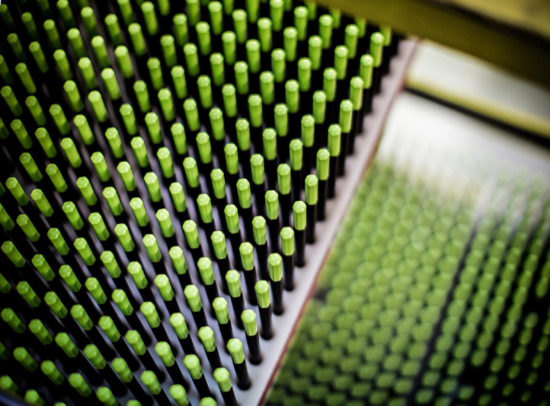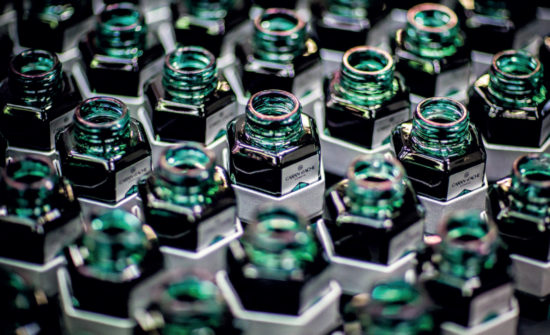Published: Friday August 19 2016Caran d'Ache, Switzerland’s manufacturer of pencils, fine-arts materials and luxury writing instruments, continues to innovate and expand globally under the leadership of a fourth-generation member of the family that runs it‘People write less in everyday life, yet everyone has a pen or pencil on their desk,’ says Carole Hübscher, Chairwoman of the company. ‘A nice pen has become an essential accessory for many men, just like a Swiss watch – a sign of status. Artists still want to use pencils and crayons to express themselves on paper with their hands.And there is a new trend in society of writing thank-you notes and greetings cards for special occasions by hand.‘Of course we are being disrupted like every other company and industry. But our premium products reflect the craftsmanship that we have built up over more than a hundred years and the unique skills of our 300 staff. As the global economy grows, so does demand for our products around the world.’At a time when so many luxury products are manufactured far from where the brand is based, the company’s owners are determined that Caran d’Ache should be authentically Swiss. All of its products have been made in Geneva since it was founded in 1915 by five entrepreneurs who bought a soap factory and converted it into making black lead pencils.
Topics:
Perspectives Pictet considers the following as important: Family businesses, family enterpreneurs, heritage firms, In Conversation With, luxury brands
This could be interesting, too:
Perspectives Pictet writes House View, October 2020
Perspectives Pictet writes Weekly View – Reality check
Perspectives Pictet writes Exceptional Swiss hospitality and haute cuisine
Jessica Martin writes On the ground in over 80 countries – neutral, impartial and independent
Caran d'Ache, Switzerland’s manufacturer of pencils, fine-arts materials and luxury writing instruments, continues to innovate and expand globally under the leadership of a fourth-generation member of the family that runs it
‘People write less in everyday life, yet everyone has a pen or pencil on their desk,’ says Carole Hübscher, Chairwoman of the company. ‘A nice pen has become an essential accessory for many men, just like a Swiss watch – a sign of status. Artists still want to use pencils and crayons to express themselves on paper with their hands.
And there is a new trend in society of writing thank-you notes and greetings cards for special occasions by hand.
‘Of course we are being disrupted like every other company and industry. But our premium products reflect the craftsmanship that we have built up over more than a hundred years and the unique skills of our 300 staff. As the global economy grows, so does demand for our products around the world.’

At a time when so many luxury products are manufactured far from where the brand is based, the company’s owners are determined that Caran d’Ache should be authentically Swiss. All of its products have been made in Geneva since it was founded in 1915 by five entrepreneurs who bought a soap factory and converted it into making black lead pencils.
The Russian for ‘pencil’
Acquiring the machinery was an expensive business and there was stiff competition from Germany and Eastern Europe, so the company was sold in 1925 to Arnold Schweizer, who was prepared to invest in it. He renamed it after a French cartoonist born in Moscow who called himself Caran d’Ache, the Russian word for pencil. Needing additional finance, Schweizer brought in Carole Hübscher’s great-grandfather and grandfather in 1930, and the family became operationally involved after the Second World War.
Even before the war, Caran d’Ache had been innovative, producing the first water- soluble coloured pencils and inventing a metal mechanical pencil when there was a shortage of suitable wood. Later, it launched wax pastels in 1952, followed by its own ballpoints in 1953 and fountain pens in 1970. Under the leadership of Jacques Hübscher, Carole’s father, it began to make luxury writing instruments using precious metals, gemstones and materials such as Chinese lacquer.
‘We are always asking ourselves what we can do better,’ says Carole. ‘We listen to our customers to find out how we can improve our products – even those that have been around for a long time. We produce different collections every year, and we can engrave our pens with names and dates to mark special events in life such as graduation.
‘Our customer base is very large, starting from young children who are often given their first coloured pencils when they begin school. This creates an emotional link that can continue into old age when many retired people resume activities such as drawing and painting using our products. And of course there are collectors.’
Carole was named Chairwoman in 2012 after her father became Honorary President, an appointment which demonstrated the share-holders’ commitment to remaining independent. She was never told that she would have to work for the company, but got to know it when growing up through meeting staff and customers. ‘As a child, I was very much part of the big Caran d’Ache family.’
She had begun her career studying at the Geneva Hotel School and working in a hotel, but she wanted experience abroad and moved to New York to work for Caran d’Ache’s US distributor. After two years, she returned to Switzerland and joined the company’s international sales department.
Still keen to get more experience elsewhere, she returned to the US in 1997 to study on the Programme for Management Development at Harvard Business School. Then she again returned to Switzerland – this time to join her future husband in Biel where she helped launch the new Calvin Klein watch brand. After acting as a consultant for a branding agency in Geneva, she set up her own branding company with two friends when her first child was born.
By the time she became Chairwoman, she had been a board member for ten years, shadowing her father part-time for the last five. She was therefore well aware of the challenges of running a family company and she welcomes the fact that it is continuing as a family business.
The independence to develop as the family wants
‘Free of the need to report numbers every quarter, we can work on our long-term strategy, even if it takes a bit longer to achieve results. A family company may not grow as fast as a listed one, but it has the independence to develop as the family wants.’
One element of its strategy has been expansion abroad, and Caran d’Ache now exports to more than 90 countries on five continents. It owns four subsidiaries in Europe and one in Japan, as well as having long-term relationships with distributors in other countries. It also makes high-end products for particular markets, such as writing instruments for Chinese calligraphy.

Another new development for the company is online distribution, started three years ago in a few markets and gradually extended to the US and other countries. ‘It’s an interesting channel, because it gives us a direct relationship with our consumers. So, too, do social media, which are evolving fast and offering opportunities to share brand experiences with end-users.
‘We also offer customer contact through our boutiques around the world. One-hour “lunch and learn” sessions demonstrate creative techniques or special products over a light meal. In China, our stores in malls provide customers with materials to do something creative for a small charge, and can display the results for sale — they become workshop spaces and galleries.’
The company also works on its environmental sustainability. ‘We use only certified wood from protected forests and have been reducing the use of solvents,’ says Carole. ‘I am proud that we are one of the few Swiss companies to have an ISO ecology certification.’
Maintaining the Swiss character of Caran d’Ache remains a challenge, not least because of Switzerland’s production costs and the high exchange rate of its currency. However, when the company built its current factory in the outskirts of Geneva in 1974, it symbolised the family’s commitment to continue with Swiss-made products.
‘We know that we can’t win a price war against competitors who manufacture in low-cost countries, so we focus on quality. We have devised some unique processes and our staff have more than 90 different skills, many of which can only be learnt in-house through our often lengthy training programmes. The result is that no competitor can offer all the products that we do.’
